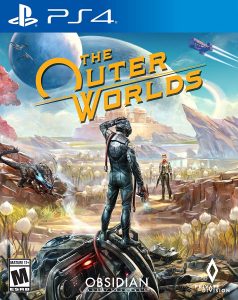 I played a game!
I played a game!
In even more shocking news, I played a game within about half a year of its release![1] I’m, uh, I’m actually having a hard time wrapping my head around that one. So, The Outer Worlds is a sci-fi RPG in which you wake up to a colonial civilization in decay and have to work out what to do about it. See, everyone came to the system from Earth about 70 years ago in two colony ships, except the second ship never showed up. Not to get too on the nose politically (primarily the first couple of groups), but the system is divided into approximately four groups.
- The Halcyon Holdings Corporation, who sponsored the outbound flight and even now works to develop new products for the many inhabitants of the Halcyon System
- The employees of the ten companies that pooled resources to form the HHC, mostly indentured to pay for their passage, and mostly unable to see a path to buying their full freedom from the situation, and that’s not counting the ones who haven’t really thought about wanting to
- Dangerous marauders who have broken free and now prey on society
- A handful of independents who through either corporate success or unlawful escape now live free of corporate restrictions, but at the mercy of the aforementioned marauders, not to mention the deadly beasts who roam the worlds and, sometimes, corporate troopers looking to enforce the original code
And now there’s you, a recently awakened colonist from the second ship, which is not lost after all, it just arrived extremely late, and by then enough water had passed under the bridge that the Board of the HHC decided… but I suppose now I’m getting into details past the first hour of play, so I’ll leave it here.
The story of this world is a delight. I can see lots of options I could have taken differently that would have had major impacts on the outcome, and some of them I would even want to see, only, who has time for playing for another 40-50 hours? The path I took, I have very few regrets about, so that’s nice. Plus the one sidebar about 90% of the way through the game that had me laughing in delight about one sublime moment of full character immersion for easily 30 minutes, before I restored and played like an adult instead.
The gameplay is… well, it’s fine, right? This is largely a shooter RPG, as I think they all are now, and it has companions, which means that your companions will always screw up your ambush and use up half or two thirds of its effectiveness. Which is a bummer. And the inventory system is nightmarishly bad. But on the bright side, once you acknowledge that there’s no way around that fact, it mostly melts away into irrelevance and just becomes the thing that makes you play a couple few extra hours than you would have in total. But if I had cared less about the plot and characters, I would have stopped playing quickly in frustration over just how bad it is, and never gotten past that threshold.
The story and backstory of the world definitely end up with more questions than answers, even as the story of the game concluded very satisfyingly. I very much want a sequel, and… I think I want that sequel to not include character importing, because my character’s story is over. But I’d hang out in the universe again from a different POV, no question.
[1] There is no question, in retrospect, that this is quarantine[2]-related. But I started in January, so it’s not solely due to quarantine.
[2] Note to future generations: It’s the Covid-19 coronavirus quarantine of 2020, not some weird personal thing or one of the other quarantines you will have learned about in your history classes.
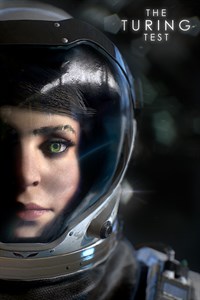 Because I am extremely timely, have another review of a game that’s leaving Game Pass today! The Turing Test is a sci-fi puzzle game[1] in which Ava Turing wakes up from cryosleep above Europa and is tasked by her AI companion, TOM, to go to the surface and find out why communication from the crew has ceased. Not as in “why aren’t they answering anymore” (although that too), as in “why is the communication link down?”
Because I am extremely timely, have another review of a game that’s leaving Game Pass today! The Turing Test is a sci-fi puzzle game[1] in which Ava Turing wakes up from cryosleep above Europa and is tasked by her AI companion, TOM, to go to the surface and find out why communication from the crew has ceased. Not as in “why aren’t they answering anymore” (although that too), as in “why is the communication link down?”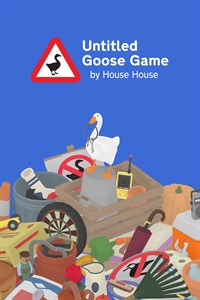 I’ve been vaguely aware of
I’ve been vaguely aware of  I played another entire game over the past few days. This is so so weird. (Which I say every time I finish a game, I know. But it is! Especially relative to how long it’s been since I finished a book[1].)
I played another entire game over the past few days. This is so so weird. (Which I say every time I finish a game, I know. But it is! Especially relative to how long it’s been since I finished a book[1].)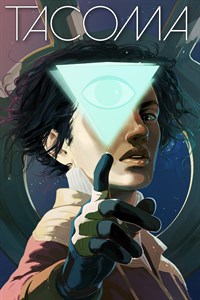 So far, my favorite thing about Xbox’s Game Pass service is that it gives me the freedom to try things out that I cannot otherwise convince myself to pay for. To wit,
So far, my favorite thing about Xbox’s Game Pass service is that it gives me the freedom to try things out that I cannot otherwise convince myself to pay for. To wit,  I played a game!
I played a game! The biggest problem with
The biggest problem with  I’m in a weird position here, in that I’ve never played an episodic game before. The chapters are not terribly long, but they’re long enough that the full game seems like it will turn out to be incredibly long, plus also I’m so bad at reviewing partial games anyway. Not to say I expect to stop playing Life Is Strange! But things happen sometimes, and the part where I opted to take a break between chapters is, if not telling, at least cautionary.
I’m in a weird position here, in that I’ve never played an episodic game before. The chapters are not terribly long, but they’re long enough that the full game seems like it will turn out to be incredibly long, plus also I’m so bad at reviewing partial games anyway. Not to say I expect to stop playing Life Is Strange! But things happen sometimes, and the part where I opted to take a break between chapters is, if not telling, at least cautionary.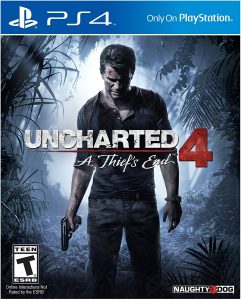 First completed video game in ages! Moving and getting married are hard, distracting work. Anyway, knowledge of this game’s release was exciting, because I’ve played the rest of the series in part as a bonding experience with my father. Then it took long enough post-release for me to get him to my house[1] that I probably should not have pre-ordered after all? Whatever, the price is only like $20 less even now.
First completed video game in ages! Moving and getting married are hard, distracting work. Anyway, knowledge of this game’s release was exciting, because I’ve played the rest of the series in part as a bonding experience with my father. Then it took long enough post-release for me to get him to my house[1] that I probably should not have pre-ordered after all? Whatever, the price is only like $20 less even now.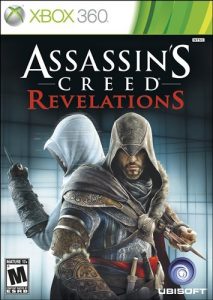 At long last, I’ve played another Assassin’s Creed game. I must be at least four behind now? And at some point they get terrible, though I do not know what point that is. Anyway,
At long last, I’ve played another Assassin’s Creed game. I must be at least four behind now? And at some point they get terrible, though I do not know what point that is. Anyway, 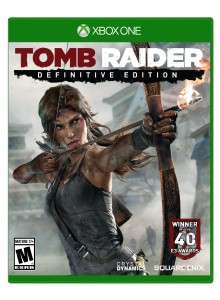 A quote from my review of
A quote from my review of